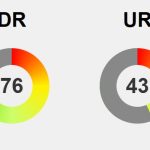Imagine reconnecting with the eating rhythms of our ancestors—eating fewer meals, stopping before fullness, and embracing periods of fasting—could unlock profound health benefits. This ancient approach, rooted in evolutionary biology, encourages metabolic flexibility, cellular repair, and natural calorie regulation. By mimicking times of scarcity and feast, our bodies shift from constant storage to active fat burning, improving insulin sensitivity and reducing inflammation. Could these simple shifts also sharpen mental clarity and promote longevity? The idea isn’t about deprivation but about trusting innate hunger cues and moderating intake in tune with our biological heritage. This mindful pattern fosters resilience, gut health, and a healthier relationship with food, all while aligning with our evolutionary design. As modern lifestyles often ignore these natural rhythms, embracing ancestral eating principles may be the key to sustainable vitality, longevity, and well-being—reminding us that sometimes, the simplest, most ancient habits are the most powerful.
Unlocking the Secrets of Ancestral Eating for Modern Health
Our ancestors didn’t follow the neat routines of three square meals a day or snack constantly as many of us do now. Instead, their eating habits were deeply tied to the natural rhythms of their environment—times of plenty, scarcity, and fasting. They ate when food was available, whether from hunting, gathering, or seasonal bounty, and often went long stretches without food during leaner periods. This wasn’t just about survival; it shaped their biology in fundamental ways, fostering moderation and self-regulation that still influence us today.
Because food sources were unpredictable, early humans naturally experienced fasting periods. When game was scarce or seasons changed, they could go days without eating, relying on stored energy reserves. During times of abundance, they consumed enough to sustain themselves through the leaner days ahead. These cycles of feast and famine promoted metabolic flexibility, allowing their bodies to switch efficiently between burning carbs and fat—a trait that remains embedded in our biology.
Their approach to eating was characterized by moderation rather than excess. Knowing scarcity could return at any moment, they didn’t indulge in overeating when food was available. Instead, they ate until satisfied and often stopped before feeling full. This mindful pattern helped regulate calorie intake naturally, relying on internal hunger and fullness cues rather than external schedules or social pressures. Such habits fostered a balanced relationship with food that supported long-term health.
Across different regions and cultures, these patterns were reinforced through social customs and traditional diets. Many involved fewer meals per day, with extended fasting periods in between. Rituals and social practices emphasized eating in response to genuine hunger, fostering gratitude and mindfulness. These habits reflected an innate tendency toward moderation and self-control—traits now recognized by science as beneficial for metabolic health and longevity.
Understanding how our ancestors ate offers valuable insights into our own biology. Their cycles of scarcity and abundance shaped systems that prioritize fat storage, cellular repair, and resilience. When food was scarce, their bodies conserved energy and repaired damage; when plentiful, they avoided overeating and metabolic disturbances. These natural rhythms are still encoded within us, waiting to be reawakened. Reconnecting with these patterns today can help restore metabolic balance and support long-term health.
Research from evolutionary biology and physiology supports the idea that these ancient patterns optimize health. Processes like autophagy and hormesis—activated during fasting or calorie restriction—are linked to cellular repair and increased lifespan. Mimicking these cycles allows us to tap into an evolved system designed for resilience, helping to reset our metabolism and promote longevity.
Revisiting these ancestral eating patterns isn’t about strict rules or deprivation. It’s about recognizing the innate cues our bodies still hold and aligning our habits with them. By embracing moderation, mindful eating, and responding to genuine hunger, we can reconnect with a natural rhythm that has supported human survival for thousands of years. This simple shift can unlock profound benefits for health, vitality, and longevity.
How Our Ancestors’ Fasting and Feasting Shaped Our Biology
Human ancestors’ eating habits were shaped by the environments they inhabited, which were often unpredictable and marked by scarcity. Unlike today’s constant food supply, early humans relied heavily on hunting, gathering, and seasonal cycles to determine when and what they ate. Their meals were sporadic, driven more by the success of hunts or seasonal bounty than by fixed schedules. As a result, their bodies adapted over thousands of years to these irregular rhythms, developing the ability to store fat during times of abundance and conserve energy during lean periods. These feast-and-famine cycles became deeply embedded in our biology.
Fasting periods were a natural part of their lives. When game was scarce or seasons shifted, early humans could go days without eating, relying on stored energy reserves to get by. During plentiful times, they consumed enough to sustain themselves through the tougher days ahead. This pattern fostered metabolic flexibility, allowing their bodies to switch efficiently between burning carbohydrates and fat—a trait still present in us today, even if modern lifestyles often ignore it.
Their approach to eating was rooted in moderation. Knowing that scarcity could return, they didn’t indulge excessively when food was available. Instead, they ate until satisfied and often stopped before feeling full. This mindful pattern helped regulate calorie intake naturally, relying on internal hunger and fullness cues rather than external schedules or social pressures. Such habits supported a balanced relationship with food, promoting long-term health and resilience.
Across different regions and cultures, these patterns were reinforced through social customs and traditional diets. Many involved fewer meals per day, often just one or two, with extended fasting periods in between. Rituals and social practices emphasized eating in response to genuine hunger, fostering gratitude and mindfulness. These habits reflected an innate tendency toward moderation and self-control—traits that modern science now recognizes as beneficial for metabolic health and longevity.
Understanding how our ancestors ate provides valuable insights into our biology. Their cycles of scarcity and abundance shaped systems that prioritize fat storage, cellular repair, and resilience. When food was scarce, their bodies conserved energy and repaired damage; when plentiful, they avoided overeating and metabolic disturbances. These natural rhythms are still encoded within us, waiting to be reawakened. Reconnecting with these patterns today can help restore metabolic balance and support long-term health.
Research from evolutionary biology and physiology supports the idea that these ancient patterns optimize health. Processes like autophagy and hormesis—activated during fasting or calorie restriction—are linked to cellular repair and increased lifespan. Mimicking these cycles allows us to tap into an evolved system designed for resilience, helping to reset our metabolism and promote longevity. It’s a way of aligning modern living with our biological heritage.
Revisiting these ancestral eating patterns isn’t about strict rules or deprivation. It’s about recognizing the innate cues our bodies still hold and aligning our habits with them. Embracing moderation, mindful eating, and genuine hunger helps reconnect us with a natural rhythm that supported human survival for millennia. This simple shift can unlock profound benefits for health, vitality, and longevity, making it accessible and sustainable in today’s world.
Embrace Fewer Meals for a Healthier, Longer Life
Reducing the frequency of meals can have a powerful impact on your overall health. When you’re not constantly digesting food, your body shifts from storing excess energy to actively burning fat for fuel. This transition improves insulin sensitivity, helping prevent type 2 diabetes and stabilize blood sugar levels. Fasting or eating less often also triggers cellular repair processes like autophagy, where damaged cell components are broken down and recycled. These natural cleanup mechanisms are linked to increased longevity and a reduced risk of age-related diseases.
Eating fewer meals each day also reduces inflammation and oxidative stress. Chronic inflammation underpins many health issues, including heart disease and neurodegenerative conditions. When digestion isn’t the ongoing focus, your body can devote more resources to healing tissues and fighting off damage. This can lead to clearer skin, more consistent energy, and an overall sense of well-being. Numerous studies show improvements in blood pressure, cholesterol, and other markers when adopting these habits.
Another benefit often overlooked is mental clarity. Mild hunger prompts your brain to produce hormones like norepinephrine, which sharpen focus and alertness. Without the constant energy drain of digestion, mental resources are freed up, making it easier to concentrate and maintain a positive mood. Additionally, fasting boosts brain-derived neurotrophic factor (BDNF), supporting learning and memory, and fostering emotional resilience. Eating less in a mindful way can make you feel more alert and present throughout the day.
Weight management naturally improves when you stop eating before feeling full. This simple shift helps recalibrate internal hunger cues, reducing overeating without the need for calorie counting or restrictive dieting. Over time, you develop a healthier relationship with food, trusting your body’s signals rather than external cues. This approach makes maintaining a healthy weight more sustainable and aligned with your natural biology.
Giving your digestive system regular breaks also benefits gut health. Constant eating can lead to bloating, inflammation, and imbalances in gut bacteria. Periodic fasting or simply stopping at fullness allows your gut to recover and reset. A healthier gut improves nutrient absorption, supports immune function, and reduces inflammation, all of which contribute to better overall vitality.
In short, adopting a pattern of less frequent eating and stopping before full isn’t just about weight—it’s about activating your body’s innate healing and resilience mechanisms. These habits echo our evolutionary blueprint, helping to prevent chronic disease, promote longevity, and foster a more mindful, balanced relationship with food. Small adjustments today can unlock profound benefits for your long-term health and well-being.
For those interested in exploring practical ways to incorporate these habits into daily life, resources on intermittent fasting and meal timing can provide valuable guidance. Learning more about how to implement these strategies effectively can support your journey toward better health. You might find it helpful to explore further insights on how to optimize your eating pattern by reading about embrace fewer meals for a healthier, longer life.
Practical Steps to Reconnect with Ancient Eating Habits
Adopting ancestral eating patterns in today’s busy world might seem daunting at first, but it’s easier than you think to weave these habits into your daily routine. Start by making small shifts—perhaps by skipping snacks or delaying breakfast, and focusing on two main meals a day. Listening to your body’s natural hunger cues and stopping before you feel full helps reset your internal signals, encouraging a more intuitive relationship with food. Over time, these simple adjustments can lead to better digestion, steadier energy levels, and a reduced tendency to overeat.
Rather than sticking to rigid schedules, shift your focus to responding to genuine hunger. This mindful approach naturally decreases calorie intake without the need for counting or strict dieting. When you eat only when truly hungry, you’re more likely to enjoy your meals and trust your body’s signals, creating a sustainable way to support your health. Filling your plates with nutrient-dense foods further enhances this effect, ensuring your body receives what it needs while respecting its natural rhythms.
Extending the gaps between meals can be surprisingly manageable. For many, delaying breakfast or skipping a snack fits seamlessly into their routines. As your body adapts, hunger becomes more manageable, and you begin experiencing the benefits of longer fasting periods. These extended breaks facilitate cellular repair processes like autophagy, which are crucial for longevity and disease prevention. Giving your digestive system regular respite allows it to reset, reducing inflammation and supporting gut health over the long term.
Utilizing tools such as meal planning apps or joining community groups can boost motivation and accountability. Connecting with others on a similar journey helps navigate challenges and stay consistent. If you have underlying health concerns, consulting a nutritionist familiar with ancestral eating practices can offer personalized guidance. Remember, the goal isn’t perfection but creating a flexible rhythm that aligns with your biological needs and lifestyle.
Beyond physical health, these habits often foster a shift in mindset. Eating in response to genuine hunger promotes gratitude and mindfulness, deepening your connection with food. Improved sleep, mood, and resilience to stress frequently follow, reinforcing a balanced, sustainable approach to nourishment. Small, consistent changes rooted in your natural biology can lead to lasting benefits that extend into all areas of life.
By embracing these ancestral principles—moderation, responsiveness, and mindful eating—you honor a time-tested system that has supported human survival for thousands of years. These practices are accessible, adaptable, and deeply aligned with our evolutionary heritage. Making gradual, deliberate adjustments today sets the foundation for a healthier, more resilient future, reminding us that sometimes, the simplest shifts can produce the most profound change.
Harness Your Biological Heritage for Vitality and Longevity
Choosing to embrace ancestral eating patterns—such as eating less frequently and stopping before feeling full—offers a natural and sustainable way to boost your health and extend longevity. These habits echo the rhythms our bodies were designed for, emphasizing moderation, mindful responsiveness, and trusting internal hunger cues. Instead of relying on constant snacking or rigid meal schedules, reconnecting with these ancient patterns can help reset your metabolism and foster resilience.
The benefits are clear. Moving away from continuous digestion activates cellular repair processes like autophagy, which are linked to increased lifespan and reduced disease risk. Eating fewer meals improves insulin sensitivity, lowers inflammation, and enhances metabolic flexibility, making it easier for your body to burn fat and maintain stable energy levels throughout the day. These mechanisms are rooted in our evolutionary past, when scarcity and abundance dictated food intake.
Eating in tune with genuine hunger rather than external cues nurtures a healthier relationship with food. It encourages listening to your body’s signals, leading to more natural calorie regulation without obsessing over restrictions. Over time, this approach supports maintaining a healthy weight, boosts mental clarity, and promotes overall well-being. Many people find that simply stopping before full helps reduce overeating and creates a more balanced, sustainable eating pattern.
Incorporating longer gaps between meals and giving your digestive system regular breaks can significantly improve gut health and reduce inflammation. These simple shifts allow your body to recover, reset, and better absorb nutrients, fostering resilience in your microbiome and immune system. Small, consistent adjustments rooted in your biological design can unlock profound health benefits without the need for drastic dieting.
This isn’t about deprivation or extreme fasting but about honoring your innate biological cues. By embracing moderation and responsiveness, you align your habits with a system that has supported human survival for thousands of years. This gentle, intentional approach can lead to lasting change, providing a foundation for long-term vitality and resilience.
As you consider these ideas, think about how they fit into your lifestyle. Gradual adjustments—such as delaying meals, listening to hunger, and stopping before fullness—can become sustainable habits that improve health and well-being. Each small step reconnects you with a time-tested system that’s still embedded in your biology, offering a simple yet powerful way to enhance longevity and quality of life.
Ultimately, returning to these ancestral eating principles invites you to trust your body again. It’s a reminder that the most effective strategies often come from understanding and respecting the natural design that has sustained humans through millennia. Embracing this approach isn’t about perfection; it’s about finding balance and harmony with your biological heritage, paving the way for a healthier, more vibrant future.







